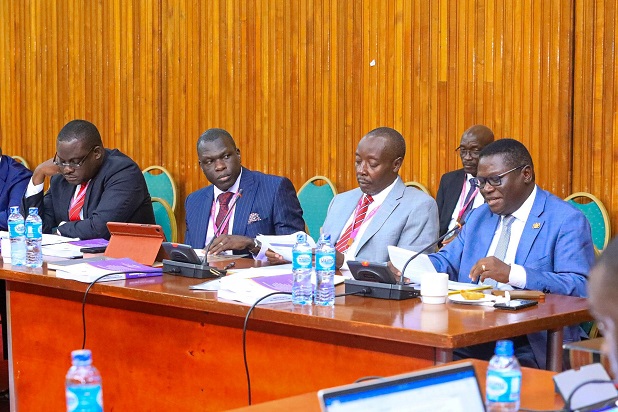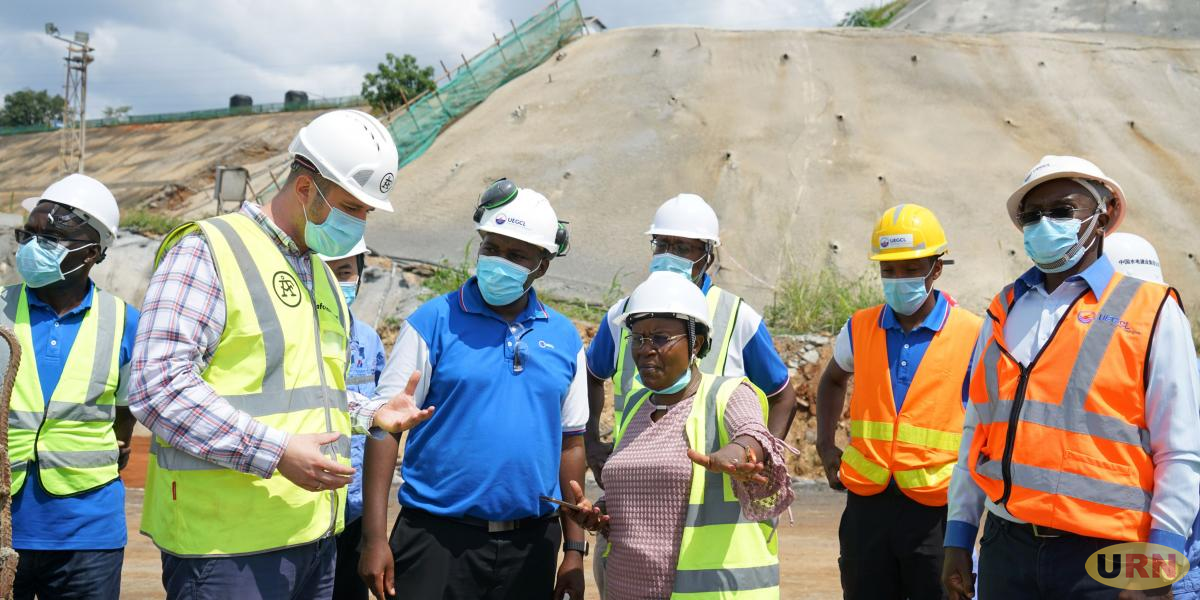The Ministry of Education says the use of laptops, smartphones, tablets, and other ICT devices will be allowed in primary and secondary schools. It however says the devices must be strictly controlled by the school authorities.
The change policy was announced by Education Minister Janet Museveni on Thursday while launching the education digital agenda. The Agenda will guide the use of Information and Communication Technologies (ICTs) in schools.
She acknowledged that while ICTs and the internet provide powerful tools for enhancing education and that the government needed to implement clear measures to ensure that technology does not become a distraction.
The minister emphasized that while the government is allowing mobile devices in schools, they should be configured to block access to unwanted and harmful content. All the devices according to the Minister must meet the approval and conditions set by regulators such as NITA-U.
Museveni noted that while school-provided gadgets will be monitored to ensure students’ cybersecurity, the Ministry cannot regulate device use at home. She emphasized the need to educatee parents on how to maintain their children’s cyber safety at home.
Possessing a mobile device like a telephone in many schools has been considered a serious offense. Students risked suspension if they were found in possession of mobile phones, tablets and other devices.
Assistant commissioner of ICT at the Education Ministry Patrick Muinda the government’s decision to maintain some restrictions was to ensure the online safety of learners.
“We want to make sure that all devices used in schools are pre-configured to prevent any potential risks,” Muinda stated adding the ministry is currently finalizing guidelines on the use of ICT tools in education. While the exact details of these guidelines are still being developed, he confirmed that privately owned gadgets will not be permitted in schools.” said Muinda, also a member of the digital agenda team.
In 2022, schools like Nakasero Secondary School had defied this policy by allowing students to bring smartphones to facilitate learning and research due to a shortage of ICT equipment. This move was immediately halted by the Higher Education State Minister, Dr. John C. Muyingo.
Mason Naginda, a Senior four students at Nabisunsa SS, believes the decision to allow smartphones in schools is long overdue. She points out that the new curriculum requires students to drive their learning.
“At home, most of us have phones that we use for research and learning,” she said. “I’ve always wondered why access to these gadgets is restricted at school, especially when our ICT labs can’t accommodate all of us at once. Even the libraries are limited, but having a phone makes accessing information much easier.”
However, Naginda also stressed that while the policy change is positive, the government must ensure support for students who cannot afford their own devices.
Dr. Munir Safieldin, UNICEF Country representative, echoed similar concerns, urging the government to move beyond the newly launched documents and ensure the effective implementation of the digital agenda.
He stressed the need for developing infrastructure and equipping schools nationwide to avoid leaving any institution behind.
Dr. Safieldin highlighted the importance of teacher training, noting that research indicates many educators are still unfamiliar with ICT advancements in education.
A 2022 e-readiness assessment revealed that 65 percent of teachers in both secondary and primary schools felt uncomfortable integrating technology into their teaching practices and preferred traditional classroom methods.
The Ministry will need approximately 1.3 trillion shillings over the next seven years to implement the digital agenda. This translates to an estimated annual expenditure of 187.214 billion to meet the initiative’s objectives.
Of the annual budget, 1.19 billion is earmarked for the production and access to localized digital content, curriculum development, e-learning, and teacher training in technology-mediated teaching methods.
Additionally, 185.9 billion will be invested each year to improve access to digital services and connectivity infrastructure.
Uganda has attempted various ICT initiatives in education, most of which have not succeeded. However, the closure of traditional classrooms due to COVID-19 for over two years prompted many schools, especially private and urban ones, to rapidly adopt tech-led learning.
This transition faced considerable challenges, as many schools were unfamiliar with digital tools and lacked clear policies and adequate teacher training, leading the Ministry to temporarily halt development in this area.
Despite these obstacles, the drive towards the digital era continued unabated. In response, a team of experts was formed to develop a Digital Agenda aimed at guiding the integration of ICT in classrooms and throughout the teaching and learning process.
The new lower secondary curriculum further underscored the necessity of mobile devices in schools, stressing the importance of student-led learning and research.
-URN





